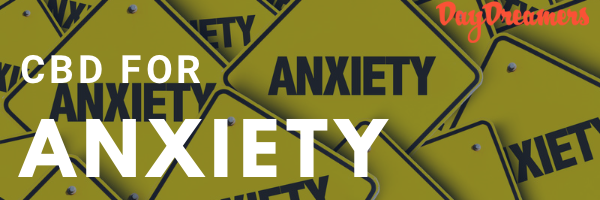
CBD for Anxiety: Harnessing the Calming Benefits of Cannabidiol
Share
In recent years, cannabidiol, or CBD, has emerged as a potential ally in managing anxiety, one of the most common mental health disorders. While pharmaceutical medications have been the traditional go-to, many individuals are now exploring natural alternatives like CBD. But what is the science behind CBD’s calming effects?
Anxiety is a complex condition characterized by persistent worry and fear. It is thought to be linked to an imbalance in neurotransmitters, brain chemicals that transmit signals. One such neurotransmitter is serotonin, often dubbed the “feel good” hormone, which plays a crucial role in mood regulation.
CBD comes into the picture due to its interaction with the body’s endocannabinoid system (ECS). As we discussed in a previous post, the ECS plays a vital role in maintaining physiological balance, including mood regulation. Interestingly, CBD doesn’t directly activate the main ECS receptors, CB1 and CB2. Instead, it is thought to influence other receptors that play a role in anxiety.
One such receptor is the serotonin 5-HT1A receptor. By interacting with this receptor, CBD may have a positive effect on serotonin levels in the brain, potentially providing an anxiety-reducing effect.
A number of studies have investigated the anxiolytic (anxiety-reducing) effects of CBD. For example, a 2019 study suggested that CBD could be beneficial for anxiety-related disorders, showing decreased anxiety levels in 79.2% of patients after CBD treatment.
It’s important to note, however, that while these initial findings are promising, more extensive, long-term studies are needed to fully understand the relationship between CBD and anxiety. Moreover, everyone’s reaction to CBD can differ due to factors such as genetics, overall health, and the use of other medications.
Always consult with a healthcare provider before starting or changing your wellness routine. As research progresses, we hope to gain a clearer understanding of how CBD might be harnessed to help those grappling with anxiety.
Anxiety is a complex condition characterized by persistent worry and fear. It is thought to be linked to an imbalance in neurotransmitters, brain chemicals that transmit signals. One such neurotransmitter is serotonin, often dubbed the “feel good” hormone, which plays a crucial role in mood regulation.
CBD comes into the picture due to its interaction with the body’s endocannabinoid system (ECS). As we discussed in a previous post, the ECS plays a vital role in maintaining physiological balance, including mood regulation. Interestingly, CBD doesn’t directly activate the main ECS receptors, CB1 and CB2. Instead, it is thought to influence other receptors that play a role in anxiety.
One such receptor is the serotonin 5-HT1A receptor. By interacting with this receptor, CBD may have a positive effect on serotonin levels in the brain, potentially providing an anxiety-reducing effect.
A number of studies have investigated the anxiolytic (anxiety-reducing) effects of CBD. For example, a 2019 study suggested that CBD could be beneficial for anxiety-related disorders, showing decreased anxiety levels in 79.2% of patients after CBD treatment.
It’s important to note, however, that while these initial findings are promising, more extensive, long-term studies are needed to fully understand the relationship between CBD and anxiety. Moreover, everyone’s reaction to CBD can differ due to factors such as genetics, overall health, and the use of other medications.
Always consult with a healthcare provider before starting or changing your wellness routine. As research progresses, we hope to gain a clearer understanding of how CBD might be harnessed to help those grappling with anxiety.
